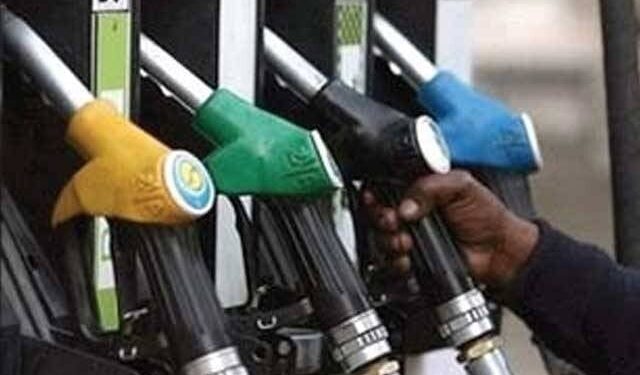Islamabad: The federal government has once again raised the petroleum levy on petrol and diesel, depriving citizens of a much-anticipated financial relief. The decision comes despite a notable decline in global oil prices and has sparked widespread concerns among consumers and economic analysts alike.
Increase in Petroleum Levy: A Major Blow to Consumers
According to the latest notification issued by the Petroleum Division, the levy on petrol per liter has been increased by Rs 10, raising it from Rs 60 to Rs 70 per liter, effective from March 16. Similarly, the levy on high-speed diesel has also seen a significant hike, moving from Rs 60 to Rs 70 per liter. This increase has nullified the anticipated reduction in diesel prices, which was expected to bring some respite to the common man.
Impact of the Levy Hike on Fuel Prices
The decision to raise the levy effectively prevents any reduction in fuel prices, which would have otherwise been possible given the recent decline in global oil prices. By increasing the levy, the government has ensured that consumers continue to bear the burden of high fuel costs despite a favorable international market situation. This move has led to concerns that transportation costs, inflation, and household expenses will continue to rise, placing additional strain on the already struggling economy.
Economic and Social Ramifications
- Inflationary Pressures: The increase in fuel levies will likely lead to a rise in transportation costs, which in turn affects the prices of essential goods, including food items and daily necessities. Historically, any increase in fuel prices has had a domino effect on inflation.
- Impact on Businesses: Small businesses and industries that rely heavily on fuel for production and transportation may face additional financial challenges. The increase in operating costs could lead to higher prices for consumers, reduced profit margins, and even layoffs in certain sectors.
- Burden on the Common Man: With inflation already at an all-time high, this additional fuel levy means that the average citizen will have to spend more on commuting, heating, and other essential fuel-dependent activities. Public transport fares are also expected to rise, making daily travel more expensive for lower-income groups.
Global Oil Prices vs. Domestic Policy
Despite a significant drop in global oil prices, the federal government has opted to maintain the current fuel rates rather than pass on the benefit to consumers. This decision has drawn criticism from economic experts and opposition parties, who argue that the government should prioritize public relief over revenue generation through excessive taxation on fuel.
Internationally, many governments adjust fuel prices in accordance with fluctuations in global markets, allowing consumers to benefit from lower costs when crude oil prices decrease. However, in Pakistan, the imposition of higher levies has negated this potential benefit, leading to frustration among the general public.
Government’s Justification for the Levy Increase
According to official sources, the government has defended its decision by stating that the increased levy is essential for revenue generation. Prime Minister Shahbaz Sharif has emphasized that the additional revenue collected from fuel levies will be used to stabilize the economy and ensure funding for critical sectors such as healthcare, education, and infrastructure.
Furthermore, the government has cited the need to provide relief in electricity prices as another justification for maintaining high fuel levies. Officials argue that keeping petroleum prices stable will help prevent fluctuations in power tariffs, which are directly linked to fuel costs.
Public and Political Reactions
The decision has sparked mixed reactions across the country. While government representatives defend the move as necessary for economic stability, opposition leaders and financial analysts have strongly criticized it. Many believe that increasing the levy on petrol and diesel is an unfair burden on the people, particularly at a time when the nation is grappling with economic hardships.
Social media platforms have been flooded with criticism from citizens who were expecting a reduction in fuel prices. Many have pointed out that, rather than providing relief, the government’s actions have further increased the cost of living for ordinary Pakistanis.
Political opposition parties have also weighed in, accusing the government of prioritizing revenue collection over public welfare. Leaders from various parties have called for immediate reductions in fuel levies and greater transparency in how fuel prices are determined.
Possible Future Scenarios
Looking ahead, the government’s fuel pricing strategy will be closely monitored. Several possible scenarios could unfold in the coming months:
- Further Levy Increases: If the government continues to struggle with revenue generation, it may further increase petroleum levies, leading to even higher fuel prices.
- Global Oil Price Changes: If crude oil prices continue to fall internationally, pressure may mount on the government to reduce fuel prices domestically.
- Public Outcry and Policy Adjustments: If inflationary pressures become too intense, public protests and political backlash could force the government to reconsider its taxation strategy on fuel.
Conclusion: A Contentious Economic Policy Decision
The government’s decision to increase the petroleum levy by Rs 10 per liter has had far-reaching economic and social implications. While the move is being justified as a necessary step for economic stability and revenue generation, it has effectively deprived citizens of much-needed financial relief. With fuel prices remaining high despite declining global oil costs, inflationary pressures are likely to persist, affecting businesses, households, and the overall economy.
As the debate over fuel pricing and taxation continues, all eyes will be on how the government balances economic necessities with public welfare in the coming months. Will the authorities revise their fuel pricing policies, or will the burden on the common man continue to grow? Only time will tell.

























